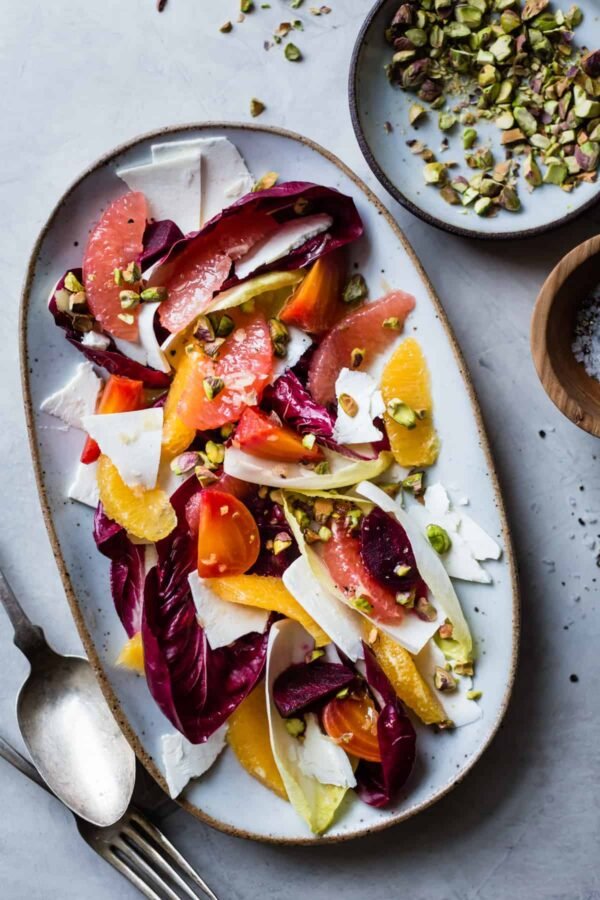
Healthy New Year’s Resolutions Which Have Nothing to do with Setting Foot in the Gym

For many of us, January marks a fresh start. After all, it’s the start of a new year and the perfect time to make some healthy changes in the form of New Year’s Resolutions which can help you to become a better version of yourself.
No sooner has the Christmas cheer disappeared, we’re bombarded with messages about keeping fit and heading to the gym to become healthier, and for many of us, this can seem like a chore.
If joining a gym or working out isn’t on your list of New Year resolutions, don’t beat yourself up about it. There are some great, easy and healthy changes you can make which will have a big impact on your wellbeing. To explain more, Nutritionist Kym Lang from Enterosgel shares her six healthy new year’s resolutions, and there’s not a gym in sight.
1. Meal prep every Sunday
If you struggle to get up on time each morning, let alone make a packed lunch, then meal prep is your secret strategy to achieving healthy eating goals. Putting aside an hour each Sunday will set you up for the coming week, and you might even enjoy the meditative chopping and dicing.
Make a batch of overnight oats to last you a few days and cook up a healthy grain like quinoa, and portion it up for lunchtime salads or dinnertime grain bowls. Roast a tray of vegetables like broccoli and sweet potato, and keep a simple dressing in the fridge to add some zest.
2. Eat little and often
Skipping meals is the worst way to lose weight. By the time of your next meal you’ll be tired, ravenous and more likely to reach for high-fat or sugary foods. Plus, you’re also missing out on important nutrients.
Eating three square meals and two healthy snacks, morning and afternoon, will keep your energy up and minimise cravings. Make time for breakfast, even if it’s a porridge pot on the way to the office, and stock your desk drawer with fruit, oatcakes and almond butter to make it easy.
3. Nourish your gut
If you get frequent stomach bugs or suffer with IBS, make a new year’s resolution to prioritise your gut health. Your digestive system plays a significant role in regulating immunity; plus, your gut microbiome protects against pathogens.
Give your immunity a boost by eating fermented foods rich in beneficial bacteria, like live yoghurt, kefir, miso or kimchi. If you often find yourself with an upset tummy, try Enterosgel (£20.99 from www.boots.com), a unique and drug-free organic gastrointestinal adsorbent. It binds to bacterial toxins which cause stomach upsets, gently removing harmful molecules with the stool and speeding up recovery.
4. Drink more water
We’ve all made this resolution, yet it’s the easiest to break. Good hydration supports your gut and kidneys, and wards off dehydration-related headaches and tiredness, so stick to your goal this year with these tips…
Keep a full water bottle on your desk, or drink a glass before each meal (which studies show can also ward off weight gain). Pep up your water jug with fresh cucumber slices, frozen berries or mint leaves. Herbal tea also counts: try flavours like liquorice or ginger that you can drink hot or cold.
5. Up your fruit and veg intake
It can be hard to hit your 5-a-day with a busy work and social life, despite your best intentions. Yet getting more vegetables and fruit in your diet can reduce the risk of some cancers and boost immunity with their phytochemicals, substances which are thought to protect your body’s cells from damage.
For maximum benefits, eat a wide variety of veg and fruit each day. Try loading your sandwich with salad, and fill half your plate with veg at dinner. Fresh, frozen and canned vegetables all count, as do beans and pulses. If you have an aversion to vegetables, try sprinkling over sesame seeds, seasoning with miso or stir-frying with garlic.
6. Eat mindfully
It’s easy to rush through the day without noticing what you’re eating. How many times have you found yourself snacking straight out of the fridge, or finishing a bag of crisps when you only meant to have a handful? Not paying attention to how you eat can upset your body’s fullness signals.
So, take time to really taste, smell and enjoy your food. Even ten minutes away from your desk to eat lunch can help. At home, set the table and play relaxing music, even if you’re dining solo. Studies show that mindful eating can help you with portion control and digestion, improve mood and reduce cravings.













































